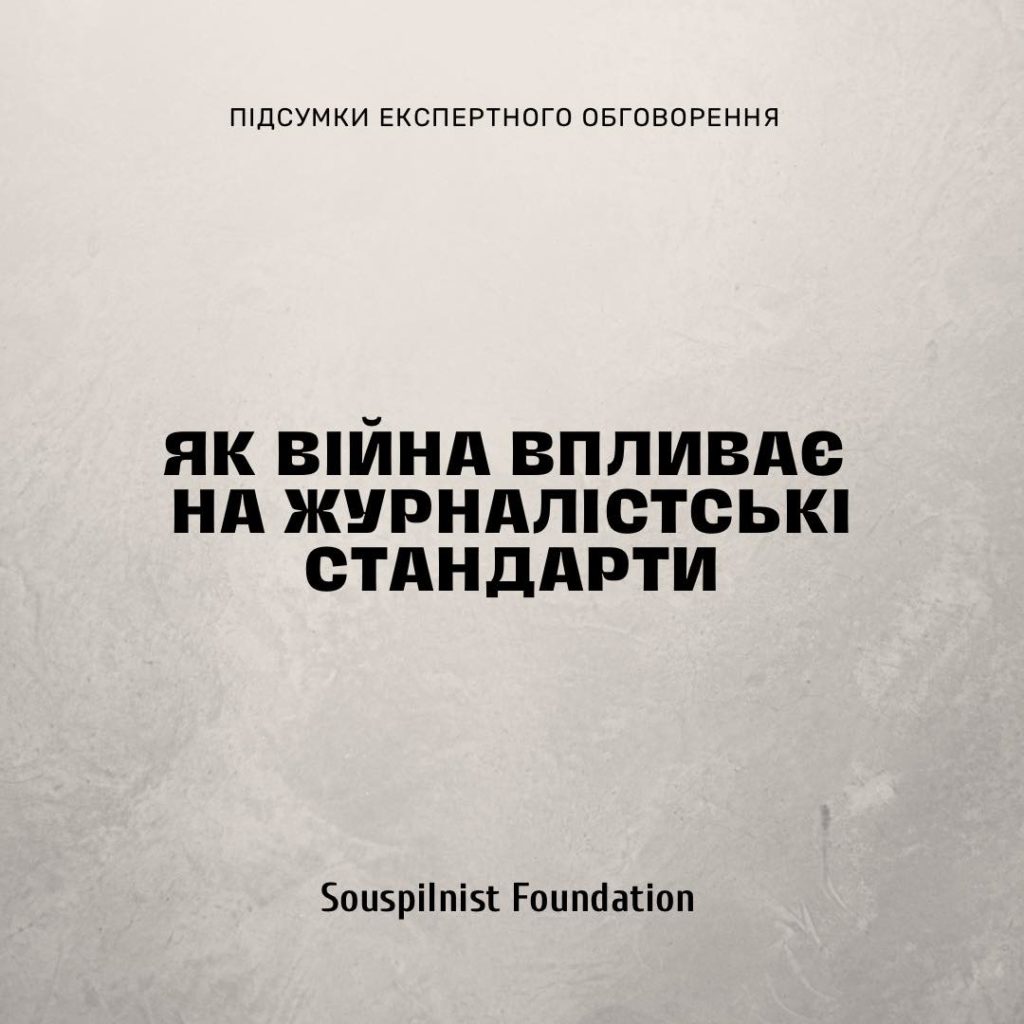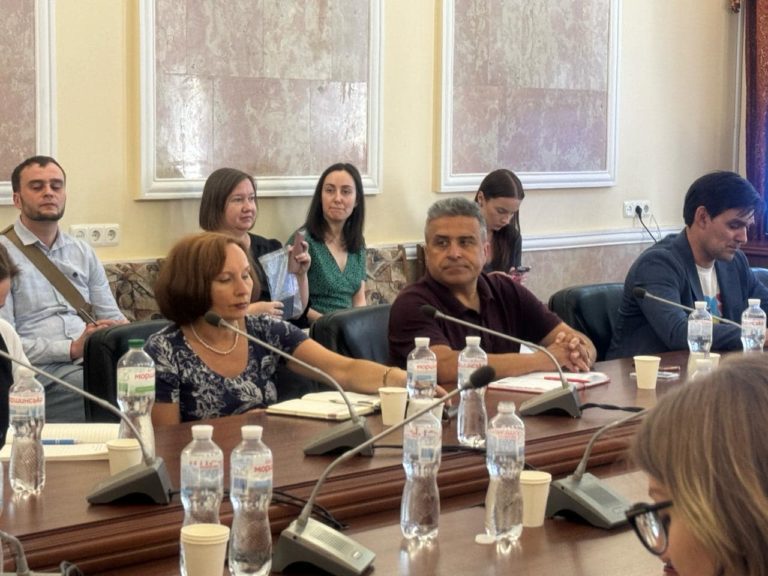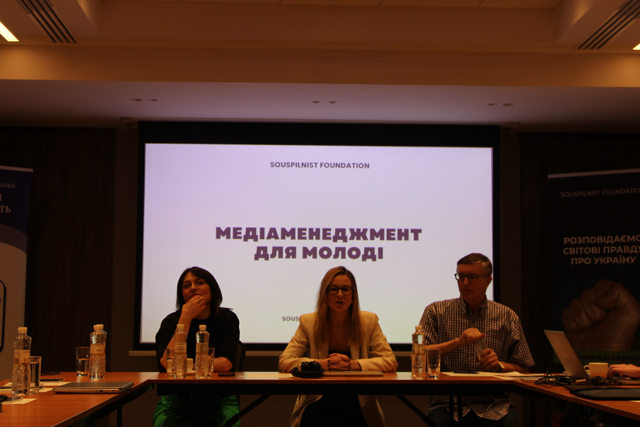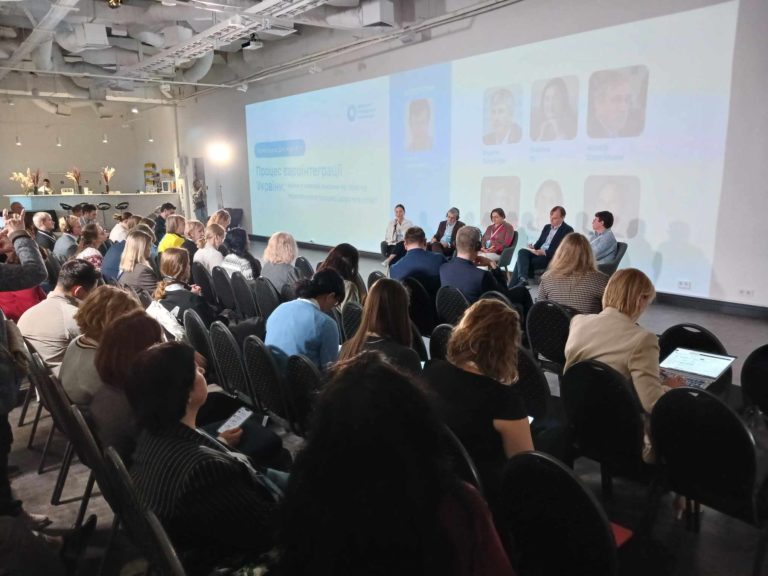During the war, journalists are faced with new challenges. How they are addressed affects the quality of the information presented, and life.
Journalists, military analysts, representatives of media organizations, and scholars discussed how the war affects journalistic standards during an online discussion on May 17.
Otar Dovzhenko, editor-in-chief at Detector Media; Serhiy Stukanov, journalist and host of the Hromadska Khvylia and Kyiv-Donbas talk shows; Tetiana Lebedieva, chairperson of the supervisory board of UA:PBC; Andriy Filipskyi, editor-in-chief of the newspaper Reporter; Ivan Verstiuk, author of NV magazine; Yevheniia Kytayiva, military correspondent; Viktoriia Romaniuk, editor at StopFake; Violetta Kirtoka, a journalist at Censor.Net; Roman Holovenko, media lawyer at the Institute of Mass Information; Serhiy Bondarenko, military analyst; Ruslan Stefanyshyn, military analyst; and Serhiy Danylenko, chairperson of the board of Souspilnist Foundation attended the discussion.
The discussion was moderated by Taras Petriv, president of Souspilnist Foundation, and Dmytro Tuzov, host at NV Radio, a media expert at Souspilnist Foundation, and member of the Independent Media Council.

The experts noted that journalists should adhere to professional standards under any circumstances. They must ensure a balance of opinions and viewpoints, timely presentation of information, its reliability (indicating sources), the separation of facts from comments and opinions, and accuracy and completeness of the information.
During the war, we must adhere more closely to standards. Journalistic pieces should not harm our country’s defense in the first place. Therefore, the military should help journalists draw these defensive borders, said Otar Dovzhenko.
Journalists and members of the military are not antagonists but those who bring us closer to victory. Also, journalistic materials can become evidence in international courts, said Tetiana Lebedieva.
It is essential to
- teach journalists how to work during wartime;
- form the institute of reputation in the media environment;
- provide news of the death of the military members after the military office has notified the relatives;
- ensure that media pieces about members of the military are agreed upon before their publication;
- wait out, collect all the evidence, and then publish the story.
We should prepare people for working during wartime. The information front is crucial, but the work must be well-coordinated and well-planned, added Ruslan Stefanyshyn.
Violation of professional standards by journalists cannot be ignored. All violations must be documented and analyzed, and these issues must be appropriately addressed, including by updating training programs.
Today, students study various subjects (communications theory, international media analysis, and country studies). We have the people who will work in the information field tomorrow, said Serhiy Danylenko.
Souspilnist Foundation organized the expert discussion with the support of Internews Ukraine, Detector Media, and the Independent Media Council.


